Political winds behind Dutton in new Trump age of optimism
The election of Donald Trump is blowing the Coalition’s way as we sail towards an election. MPs are now rightly questioning Peter Dutton’s commitment to net zero.
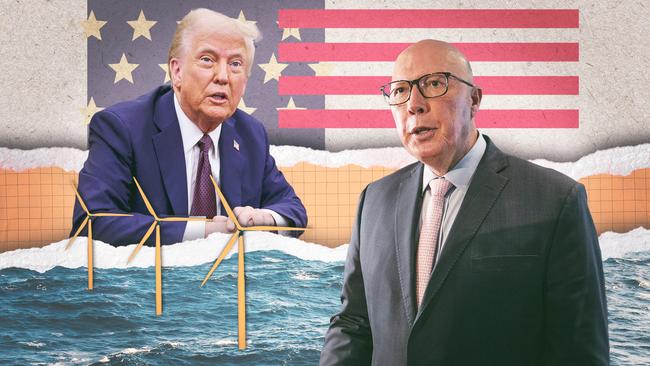
Geopolitics, fiscal outlooks, economic prospects, cultural movements, climate policies, energy priorities, and political norms have been up-ended in the world’s leading nation and globally. That is the macro picture – but on the streets of Washington DC this week it has been reflected in a micro and organic fashion.
This city is an elitist sanctuary where bureaucrats, political advisers, lobbyists, lawyers and media types live inside a beltway (the ring route encircling the capital) that serves as a practical and symbolic barrier to the mainstream. Washington inside the beltway is like the Canberra bubble with double-glazed glass.
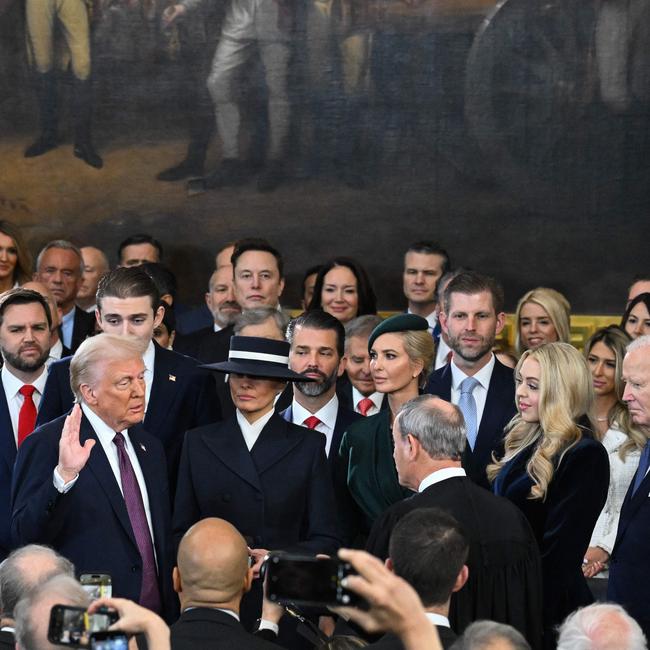
Yet as the temperature plunged and roadblocks, crowd barriers and security forces locked down large parts of the city this week around the Capitol, White House and Capital One Arena, Washingtonians stayed away. Some left town but most were at home, probably watching the inauguration on television, peeking through their fingers as they clasped hands across their faces. The local elites surrendered the capital’s streets to tens of thousands of visiting Trump supporters. Mobs of people sporting MAGA hats and other Trump paraphernalia speaking in southern, mid-western and other accents, were smiling and laughing even as the mercury plunged below 0C.
Disappointed the weather forced inauguration events indoors, depriving them of witnessing the event and cheering a street parade, they were determined to enjoy themselves regardless.
They sang the national anthem while they queued for the Trump rallies, they smiled at strangers and invited others to slip in front of them in coffee queues.
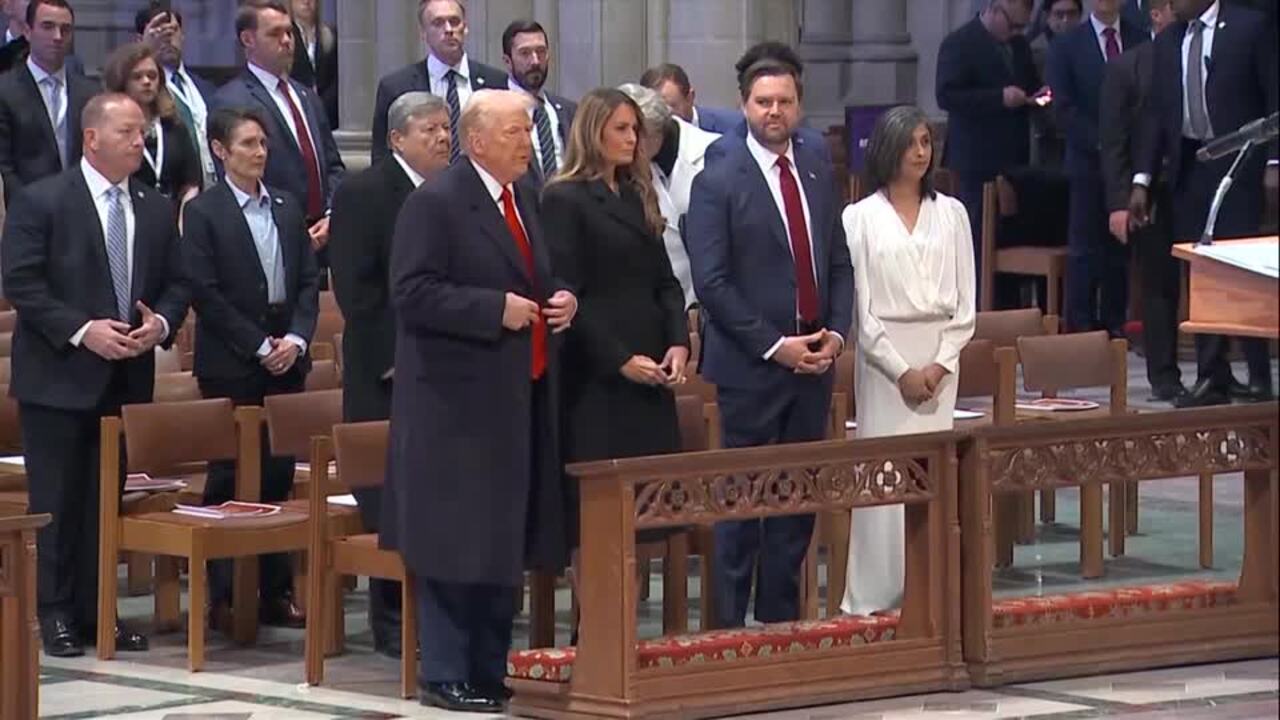
It was a remarkable vibe in what is normally a woke and pompous city. Suddenly DC was as friendly and egalitarian as a country town – for a few days Washington resembled Wagga.
This was as instructive as the major policy decisions because it underlines the core strength of the Trump revolution. This President draws his agenda and his power from mainstream people and their legitimate priorities.
The friendly crowds contrasted sharply with the violent scenes of January 6, 2021, when the Capitol riots showed an ugly and aggressive side to Trumpian fanaticism in scenes that went close to ending Trump’s political career.
The non-elitist visitors who took over Washington this week provided a palpable reminder that in its most sanguine form, the Trump agenda is about returning government to the people for the people.
Of course, Trump is a flawed and volatile character who often falls short of these ideals too, especially in 2021 when he withheld the loser’s consent that is so vital to the peaceful transfer of democratic power. Joe Biden, on the other hand, for all his faults and disgusting family pardons this week, at least restored our faith in these processes by welcoming Trump back to the White House and attending the inauguration.
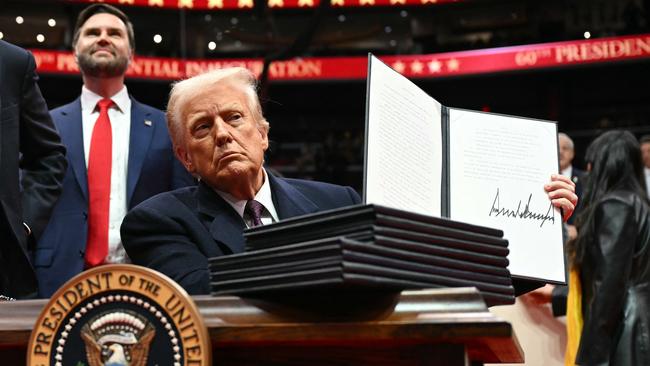
What we saw from Trump on the afternoon of his second inauguration left us breathless.
In just a few hours he abandoned the Paris net-zero agreement, paused renewable projects, accelerated oil and gas exploitation, threatened to use military and economic might to settle wars in the Middle East and eastern Europe, ended the diversity, equity and inclusion agenda, pledged to “retake” the Panama Canal, turned his back on the World Health Organisation, renamed landmarks, said he would get an astronaut to Mars and promised this was all just the beginning. For a bloke committed to smaller government, Trump’s first week also demonstrated the vast power of government.
He has put to shame the timid and consensus-driven approach of politicians the world over who refuse to take any action without bureaucratic approval, thereby handing power to the unelected bureaucrats and insulating themselves from mainstream perspectives.
Freshly sworn in for the first non-consecutive presidential term in 130 years, Trump 2.0 took to a stage at his inauguration rally to sign executive orders. The orders were announced to the crowd, the President signed them with a flourish and displayed them to cheers – this was governance as performative art. The orders meant a politician was doing what he promised to do – no more and no less – yet it is so unusual that Trump has turned it into a spectator sport.
In the accelerated and amplified world of the digital age, the usual swings of action and over-reaction are wilder than ever.
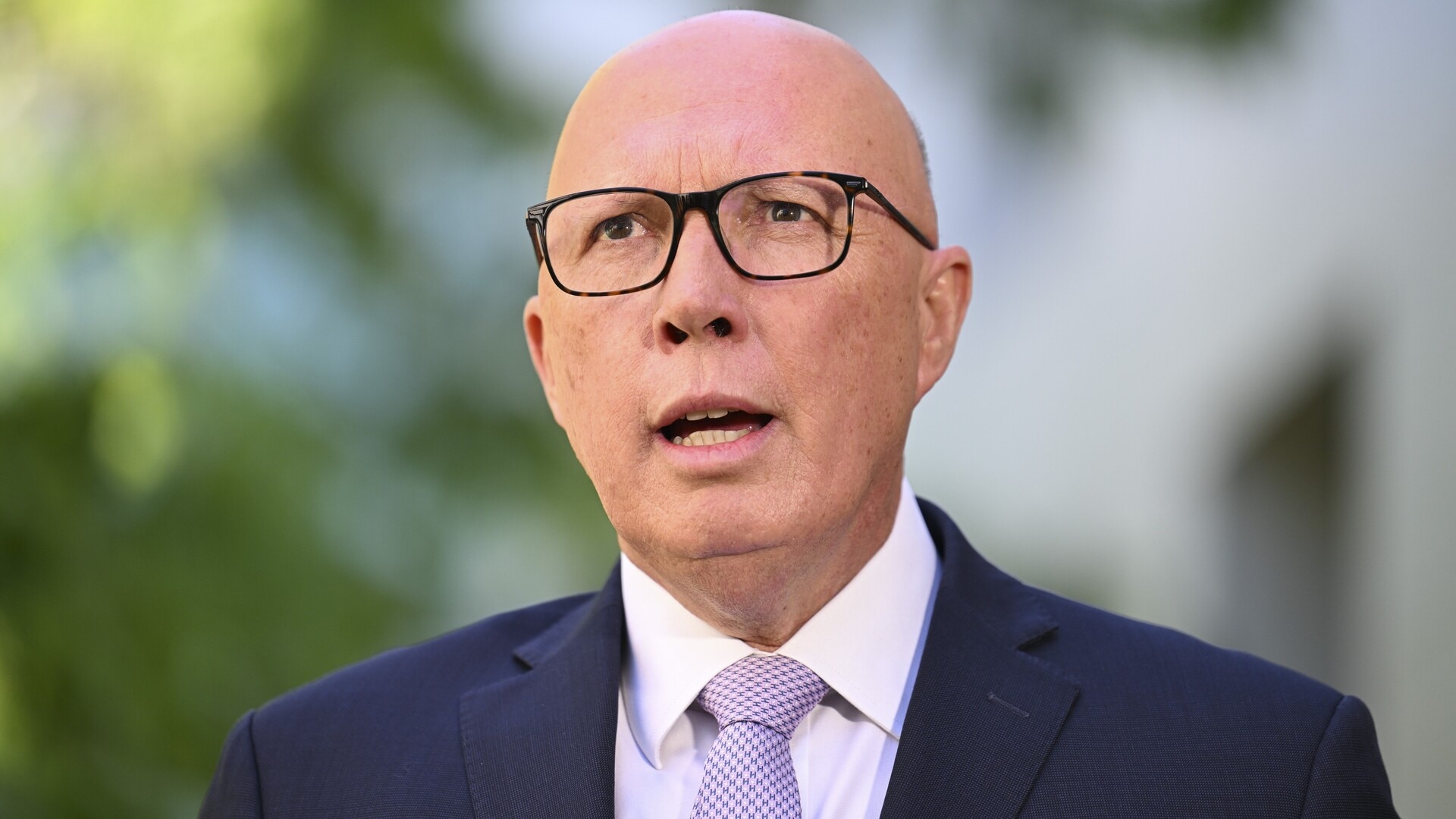
The decades-long growth of woke policies and nanny-state government have been met with a dramatic rebuff – instead of recalibrating DEI polices, clean energy objectives or immigration processes, Trump has scrapped them with the stroke of a Sharpie. What has happened in Washington this week is a restoration of direct connection between government and voters. The priorities of governments have drifted away from the source of their power and funds, the voters and taxpayers.
Like Australia, Britain, Canada and many other liberal democracies, the prosperous immigrant society of the US has developed organically thanks to the free market, personal enterprise and a lack of interference from government. The modern indulgence of trying to remake society by government fiat was always fraught and Trump has called it out.
What Trump has unleashed in America will have a direct impact on Australia’s policy decisions, economy, political debate and election. To take one small example, Trump has ordered US embassies to cease flying LGBTQI and Black Lives Matter flags alongside the Stars and Stripes – this “one flag” directive echoes and enhances Peter Dutton’s earlier call on our flag.
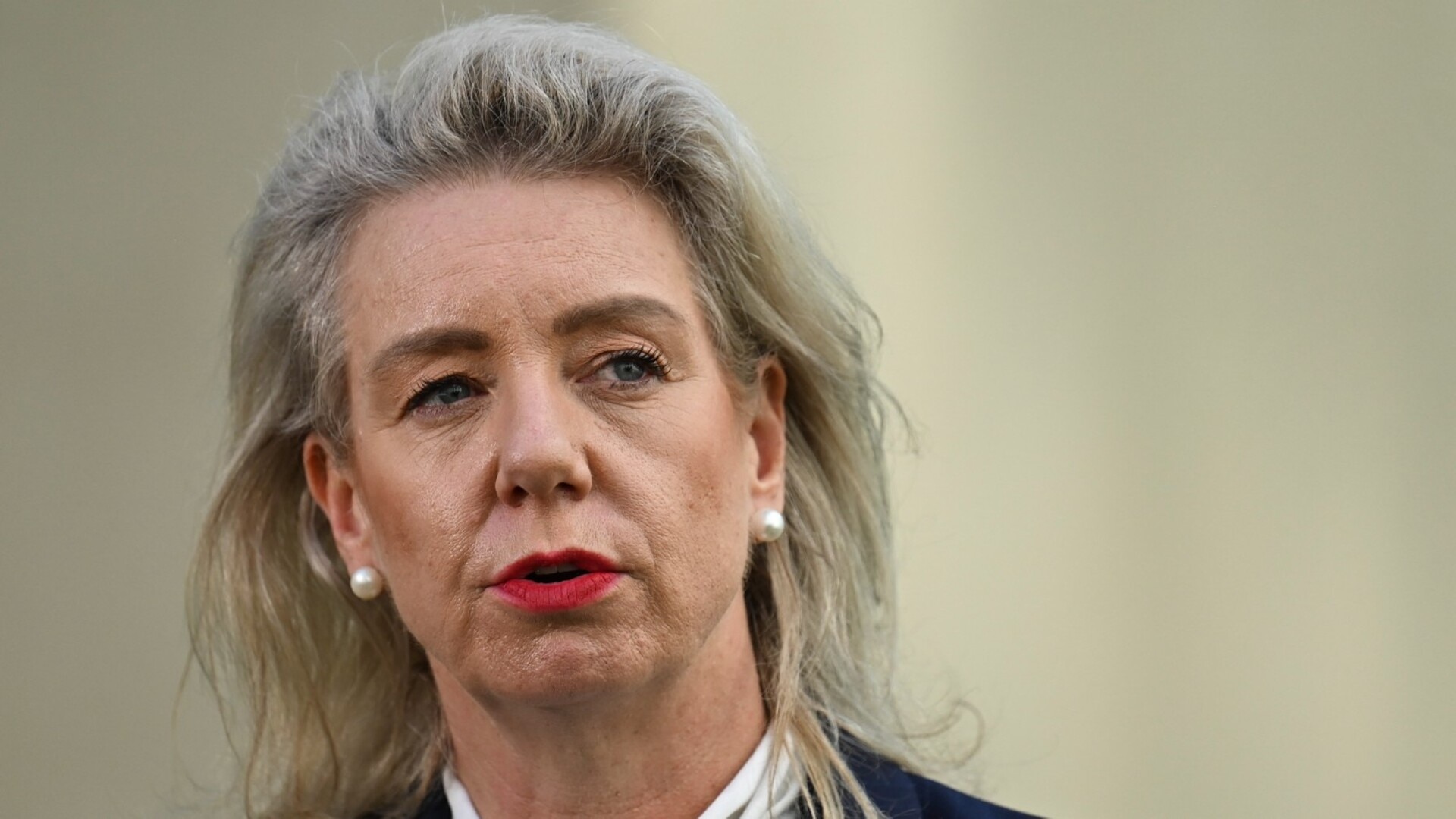
The zeitgeist is blowing the Coalition’s way. The election of Trump and this eventful week of significant change mean the political winds are behind the Opposition Leader as we sail towards an election in April or May. By declaring an energy emergency, promising to “drill, drill, drill” and withdrawing again from the Paris climate agreement, Trump has reset the global climate and energy debate. It accentuates the pointless self-harm of Australia’s attempt to deliver a world’s first renewables-plus-storage electricity grid.
The Trump move will put downward pressure on gas prices including for our exports, and it reignites the debate about why Australia is so determined to impoverish itself in pursuit of emissions reductions targets that, according to the science, can make no discernible difference to the climate.
Coalition members now rightly question Dutton’s commitment to net zero, and former Labor defence minister Joel Fitzgibbon, in Washington for the inauguration, told me Anthony Albanese will need to “recalibrate” his climate and energy policies in the wake of the Trump changes.
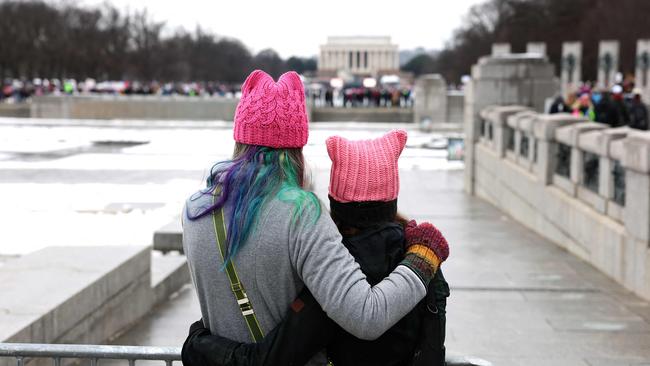
Fitzgibbon warns that “overreach” on climate policy hurt the Democrats and Labor needs to recognise the new Trumpian environment by winding back its ambitions before the election.
By scrapping DEI policies and declaring the return of a meritocracy, Trump has exposed the counter-productive waste of these programs. The move is bound to spread globally, presenting an opportunity for Dutton to promise something similar in Australia, perhaps helping to relieve the corporate world of a costly indulgence.
One of the most refreshing aspects of Trump 2.0 is his willingness to talk to anyone about anything and do it with unusual frankness. After giving three speeches on his inauguration day, signing executive orders at his indoor parade, and before speaking at three inauguration balls, Trump sat in the Oval Office signing more orders and taking a random series of questions from journalists.
On Thursday he joined via satellite the global corporate elite at the World Economic Forum’s annual Davos summit. This gathering represents the antithesis of Trump’s world view but he took questions and shared his aspirations for the global economy, the China relationship and the Ukraine war.
We are not used to seeing political leaders speak so freely. Trump is so comfortable and confident in his world view (more so than in his first term) that he is relaxed about these stream-of-consciousness events – agree or disagree, no one can be in any doubt about his views.
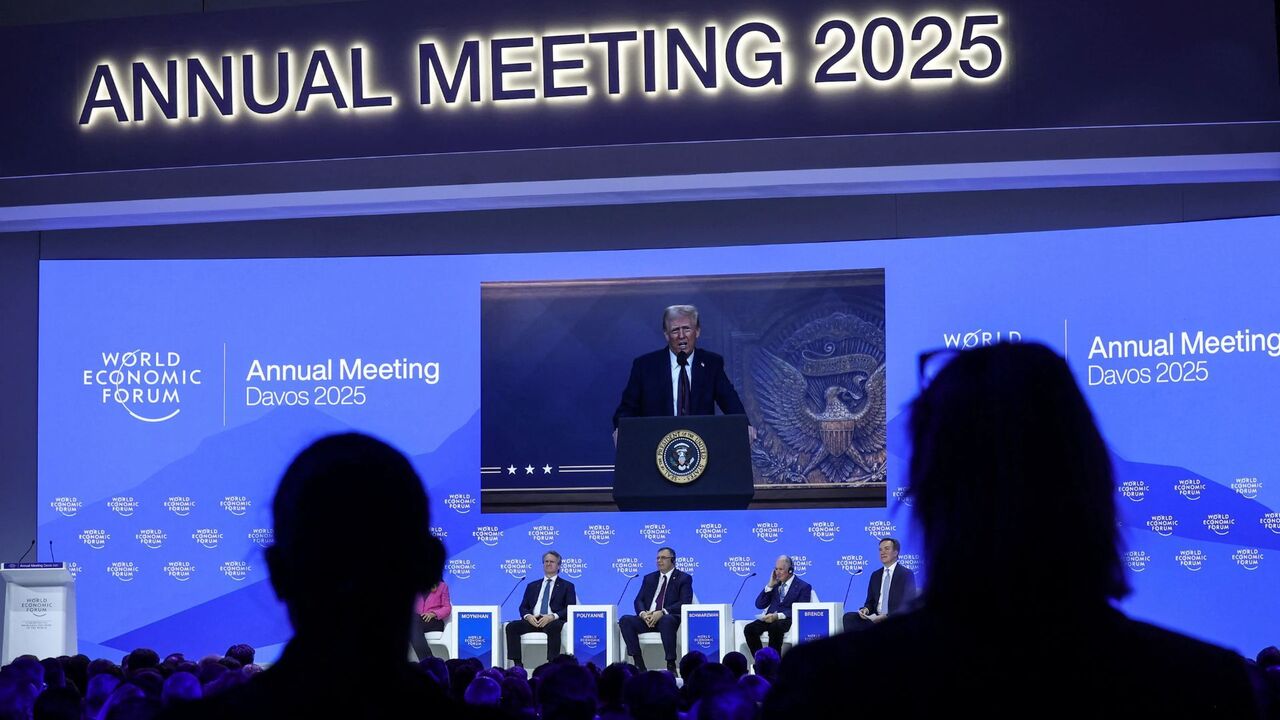
These are heady days in the US. Trump faces no hurdles – he has a majority in the House of Representatives and the Senate, the Republican Party is united behind him, the Supreme Court bench is favourable, he has a strong electoral mandate, and because this is his second and final term he is unburdened by electoral considerations.
Yet we know that sooner or later there will be setbacks and roadblocks. The bureaucracy will push back, as will state governors and other interest groups, along with other nations. The economy, as ever, will dictate political success and he lacks a plan to tackle debt.
In his first week Trump has set expectations ridiculously high. If he goes close to meeting them, he will be a remarkable success. If he begins to fall short he will lose impetus. The next two years are crucial because according to political orthodoxy he could lose his congressional majorities at the midterm elections.
As of this week Trump has a 56 per cent approval rating, the highest it has ever been. For the most hated figure in US presidential politics, he is riding an astonishing wave of goodwill. The optimism he has unleashed in the US is almost tangible. This country always exudes confidence and energy, but Trump has flicked on the afterburners.
He also is acting as an antidote to political correctness. Like the person at the dinner party who dares to raise the awkward topic, Trump’s no-nonsense approach on DEI, gender, borders and other topics gives permission for others to speak. At a Christmas Day lunch in New York City some learned Americans told me Trump would spell the end of political correctness globally. I understood their point but was sceptical because Trump’s ascendancy has not been reflected in the political leadership of Britain, Europe (except in Italy) or Australia.
But having seen the President in action this week we can imagine the conversation changing around the world.
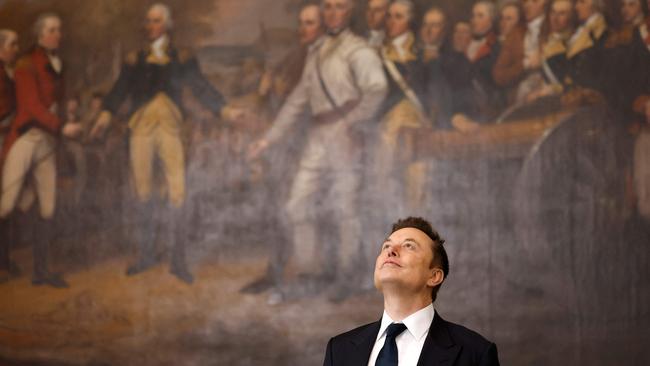
The first Trump term coincided with a pandemic that was used by elected and unelected progressives to deliver unprecedented levels of government intervention.
Trump 2.0 is perfectly placed to start tearing down that artifice. We will see.
His political opponents and the dominant leftist media look certain to help him. They seem to have learned nothing over the past decade and instead of re-examining their own preferred policies and personnel they remain intent on demonising Trump and anyone associated with him.
The confected “Nazi salute” attack on Elon Musk was a classic of the genre. There are serious questions to be asked about possible conflicts for Musk in his role advising on government efficiency while running massive business interests linked to government programs and while being mooted as a possible buyer of TikTok, yet those serious issues are overlooked in place of shouting “Nazi!” at Trump and his allies.
It is tiresome and provides wind beneath Trump’s wings. Elsewhere one commentator rued the demise of DEI by arguing all Americans would qualify for such programs in one guise of another; it did not occur to her that if we all qualify for diversity and inclusion measures then they are superfluous.
The next four years promise to be extraordinary. Trump could reassert American exceptionalism at home and abroad.
To the extent he warrants criticism and constraint, his opponents will need to learn that abuse and mischaracterisation are no substitute for intelligent opposition and viable alternatives.
If they fail to comprehend this, they will see Trump 2.0 presage two terms of JD Vance, which of course may be well and good for the rest of us.








The world has changed this week in ways that will leave the liberal-left elite and big government functionaries in a cold sweat. The Trumpian transformation has been as swift as it has been expansive, and we are left to question the amount of resistance it will meet and how deeply it will spread across other Western democracies – including our own.